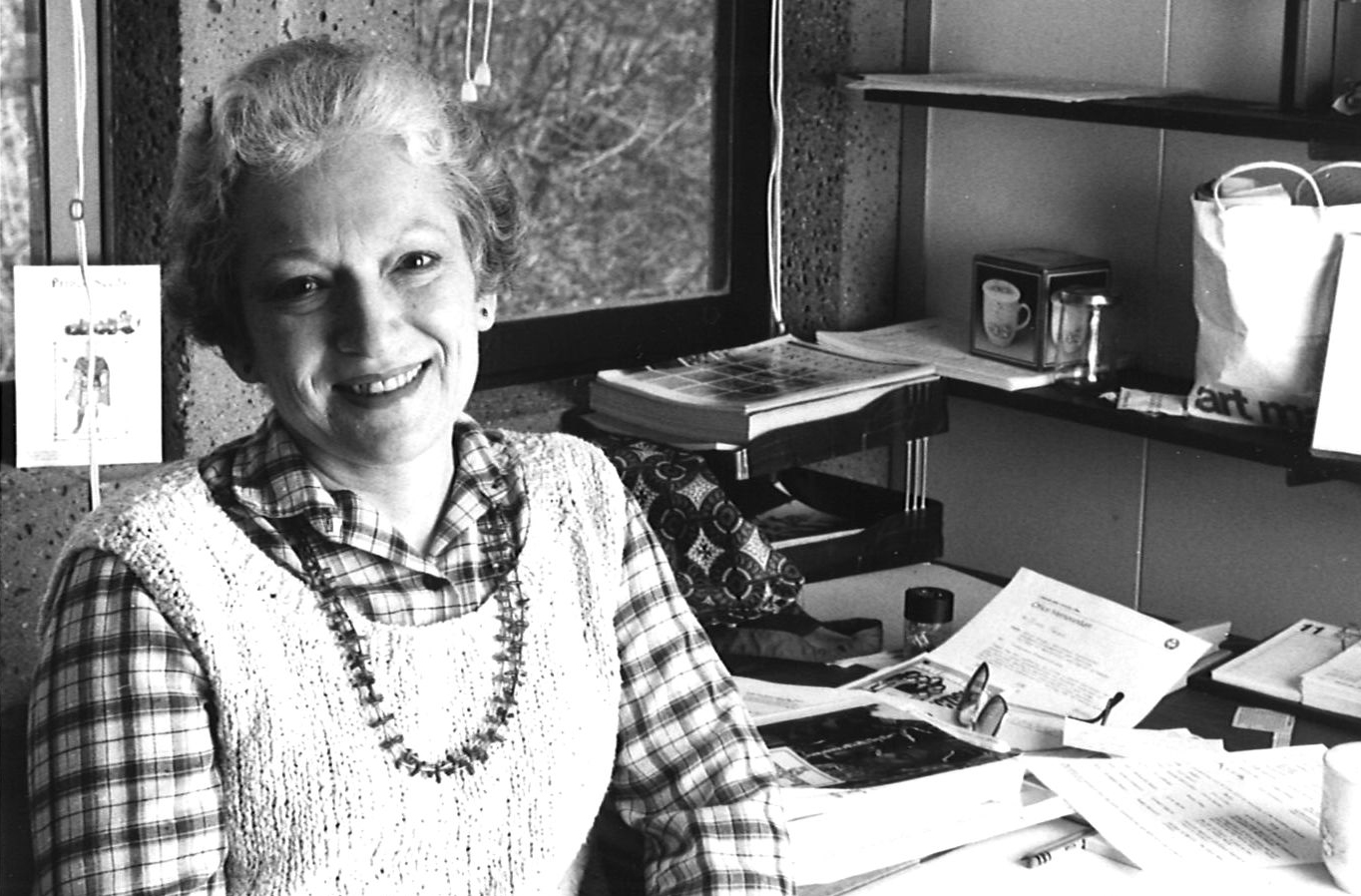Fond Farewell: Anthropology Professor Emerita Ginger Farrer

Anthropology professor emerita Claire “Ginger” Farrer passed away in September 2020. She was 83.
Born December 26, 1936, in New York, she married, raised a family, and was involved in building a daycare center before she earned her bachelor’s degree from University of California, Berkeley in 1970. She taught 6th grade before earning her master’s and PhD from the University of Texas at Austin and became an associate professor of anthropology at the University of Illinois, Urbana-Champaign.
Farrer was hired as a professor of anthropology at Chico State in 1985. Better known as Ginger to her colleagues, students, and friends, she was internationally renowned in the field of ethnoastronomy, which is the study of observable celestial phenomena and the timing of cultural rituals to celestial movements. Farrer often described it as “living the sky,” referring to how the sky forms templates for life and ways of living for particular cultures. She extensively studied a real-world application of this at the Mescalero Apache Indian Reservation in south-central New Mexico for several years, following a participant-observant mode that included living on the reservation for one year in the 1970s and being part of everyday life, helping with babysitting, cooking meals, and participating in celebrations and ceremonies.
“Ginger’s contribution to anthropology is clear. A greater gift, perhaps not as well known, was her guidance to students, especially women, and her commitment to Native American rights,” said alumna Barbara Vlamis (Anthropology, ’92; MA, Interdisciplinary Studies, ’96), who took several classes with Farrer and became lifelong friends. “From what I experienced and observed, she touched thousands of people’s lives, and I believe many of those people took what they absorbed from her and became passionate about contributing to a better world.”
Throughout her career, Farrer received numerous fellowships, honors, and awards, including the Award for Ethnoastronomy of the Mescalero Apache by American Council of Learned Societies; a visiting professorship at Seminarie Voor Antropologie, Rijksuniversiteit-Gent, Belgium in 1990; the Hulbert Endowed Chair in Southwest Studies at Colorado College in Colorado Springs in 1997; the National Endowment for the Humanities/Henry Jack Gray Distinguished Visiting Professor of Humanities at the University of Hartford, Connecticut from 2002–03; and Outstanding Scientist for 2002 by the International Biography Centre of Cambridge, England.
At Chico State, she developed the certificate program in applied anthropology and received a Center for Excellence in Learning and Teaching research award for her work with a Whiteriver Apache healer in 1999. The University named her Outstanding Professor in 1993–94 and Master Teacher in 1999–2001, recognizing her encouragement of both students and colleagues, enthusiasm, creativity, commitment, and honesty. Farrer challenged her students to think critically and held lofty expectations for their scholarship.
“She had really high standards, and she definitely taught me how to write properly. She really respected academic writing and spent a lot of time working with students to improve their seminar papers,” said professor Eric Bartelink (MA, Anthropology, ’01), who had her as a professor for two graduate seminars. “She also really wanted students to know the history of their fields, and required students to trace their disciplines for their origins to the modern day.”
Alumna Heather McCafferty (Anthropology ’95; MA, Anthropology, ’08), assistant curator of the Valene L. Smith Museum of Anthropology, took several classes from Farrer as an undergraduate student in the early 1990s and said she deeply admired and respected her as a professor and scholar.
“She was a tough professor, but she inspired her students to work hard and live up to her rigor,” McCafferty said. “Later on, after I received my master’s degree and began teaching cultural anthropology courses, I used her ethnography, Thunder Rides a Black Horse: Mescalero Apaches and the Mythic Present, in my courses. It was such an honor to know her and to be able to share her work with my students.”
Farrer retired in 2004 and moved to Colorado. She is survived by a daughter, sister, and many cousins. No services are planned at this time. Memorial contributions may be made in her name to the Mescalero Apache Tribe, PO Box 227, Mescalero, NM, 88340, with a note for the “educational fund.”
The University flag will be lowered Thursday, February 18, in her honor.


